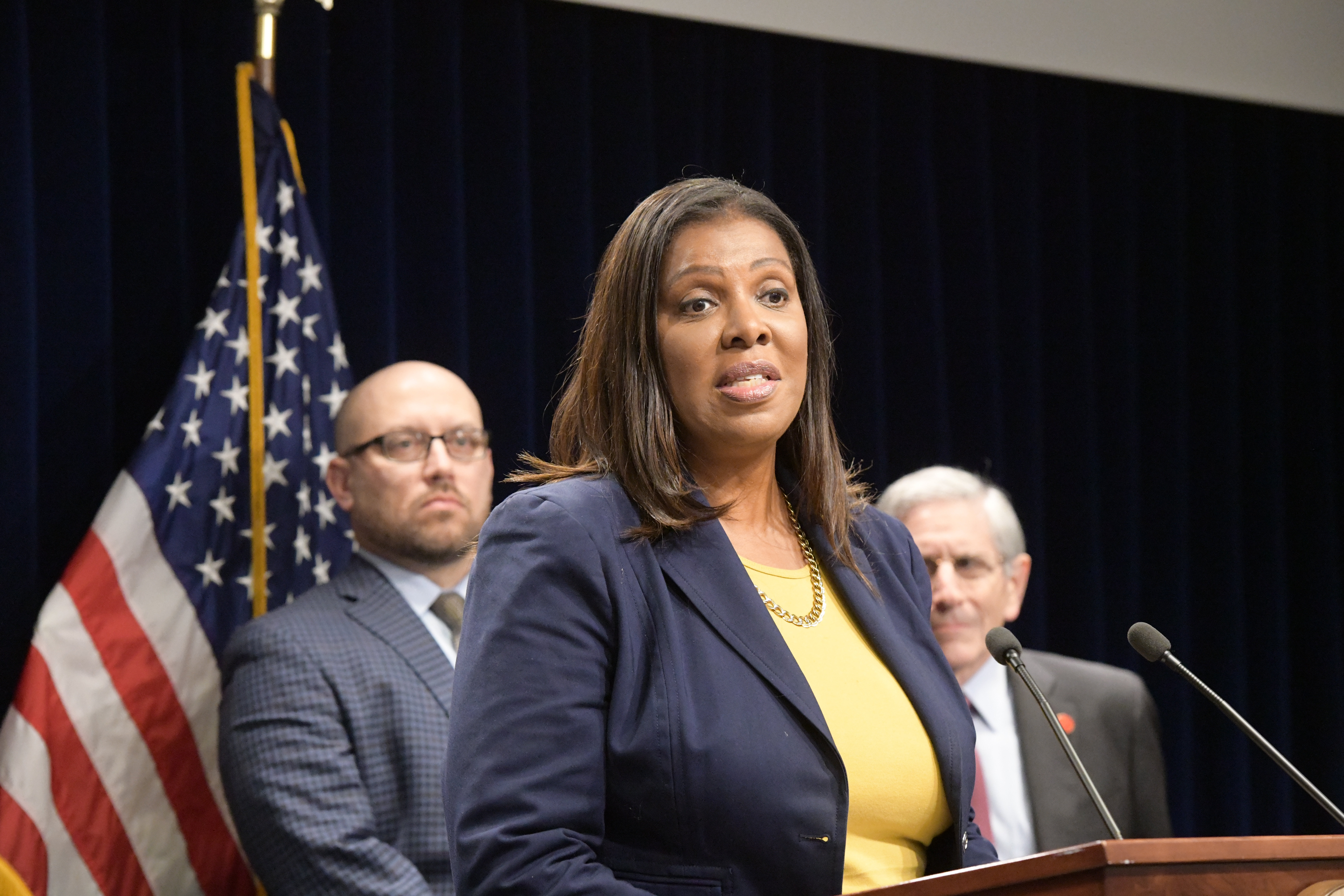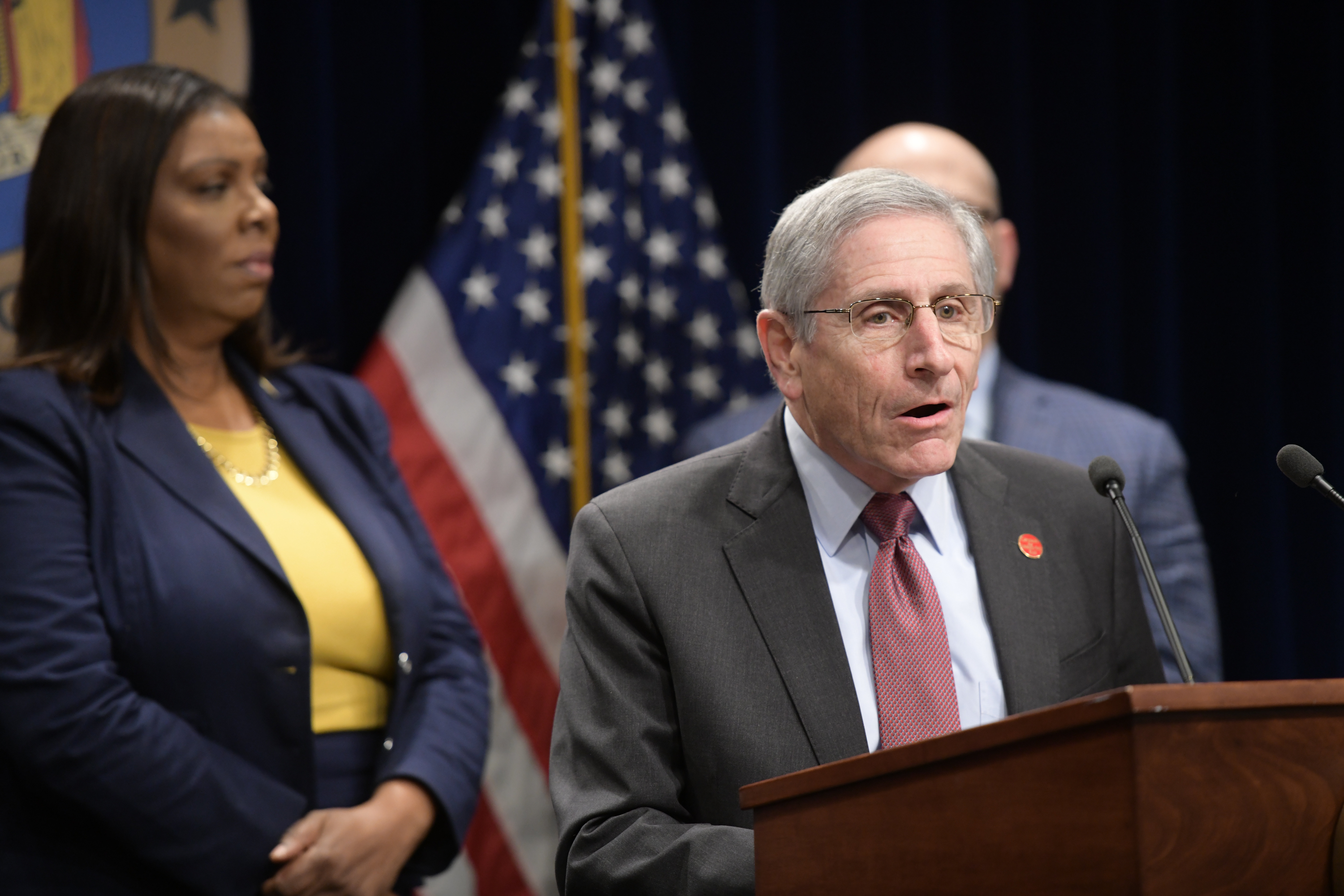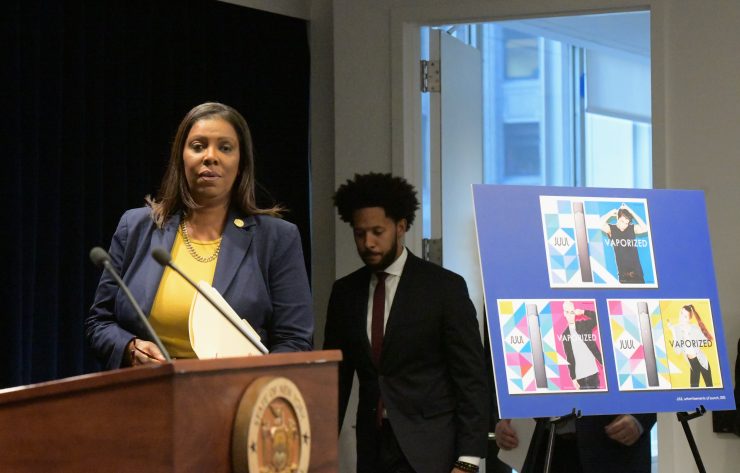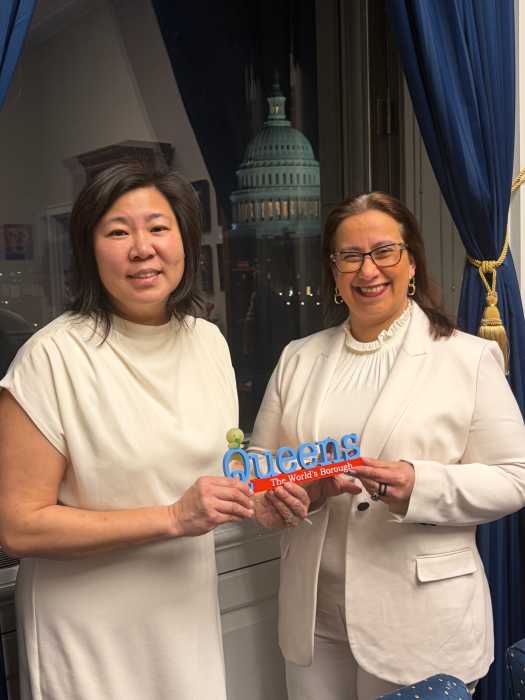New York Attorney General Letitia James launched a far-reaching lawsuit on Tuesday against JUUL Labs for deceptive marketing practices targeting teenagers to buy electronic cigarettes and vaping products.
“JUUL contributed significantly to the rising national vaping crisis,” James said during her Nov. 19 announcement at her Manhattan office. New York joins California and North Carolina in suing JUUL, which controls 60 percent of the vaping market.
The lawsuit alleges that “JUUL took a page from Big Tobacco’s playbook,” as James described it, engaging in deceptive business practices targeting young people with various marketing and advertising tactics such as advertisements featuring young models and social media campaigns. It is also alleged that JUUL illegally sold products over the internet to minors.
The case, in the making since 2018, has taken on more urgency, according to James, who pointed to the number of kids were using vaping products and getting sick with lung ailments.
“We have a 17-year-old from the Bronx who is now dead from vaping – the youngest fatality in the U.S.,” James said. “JUUL has contributed greatly to the crisis by glamorizing vaping with deceptive advertising and marketing to young people and now countless New Yorkers are at risk.”

As of Nov. 13, New York state law makes it illegal to sell nicotine products, including e-cigarettes, to anyone under 21 years old (the previous minimum age was 18). This past September, Governor Andrew Cuomo announced he was seeking to outlaw the sale of any flavored vaping products, except for menthol, to anyone due to the potential health hazards associated with vaping.
The City Council is also preparing a bill that would make it more difficult for children to get vaping products and will place restrictions on sale.
James’ suit seeks a permanent injunction against JUUL from “engaging in fraudulent practices.” In addition, the state wants JUUL to pay into an abatement program, as well as civil penalties of $5,000 per instance of deceptive practices.
The lawsuit also seeks reimbursement to the state for health costs and an accounting of their profits to “disgorge earnings from the deceptive practices.” She said that should the company file bankruptcy, they will “seek remedies in court.”
As for other companies engaged in selling vaping products, she said that anyone who tries to fill the vacuum that may be left from JUUL, will “face the same remedies.”
“Only 3 1/2 years ago, there was nothing, and now we have a problem of monumental scale,” James said. “Now you can go into schools and your are hard pressed to find any kids that haven’t tried it and it is now interfering with school days.”
She was accompanied by anti-smoking/vaping advocates and a school principal from East Hampton. Principal Adam Fine said he estimates that 60 percent of his school, 650 of 900 students, currently using vaping products. He said numerous students are having vaping products seized in school and “since the first day of school, my assistant principals are working every day with vaping problems and we are finding kids are addicted to the nicotine and they are also coming forward.”

Matt Myers, president of the Campaign for Tobacco Free Kids, said the vaping epidemic is “a major health crisis” and he called for stricter laws and more lawsuits to stop the deceptive practices of JUUL and others to sell the products.
“These companies have caused harm and problems with their deceptive business practices and it must be stopped,” Myers said.




































